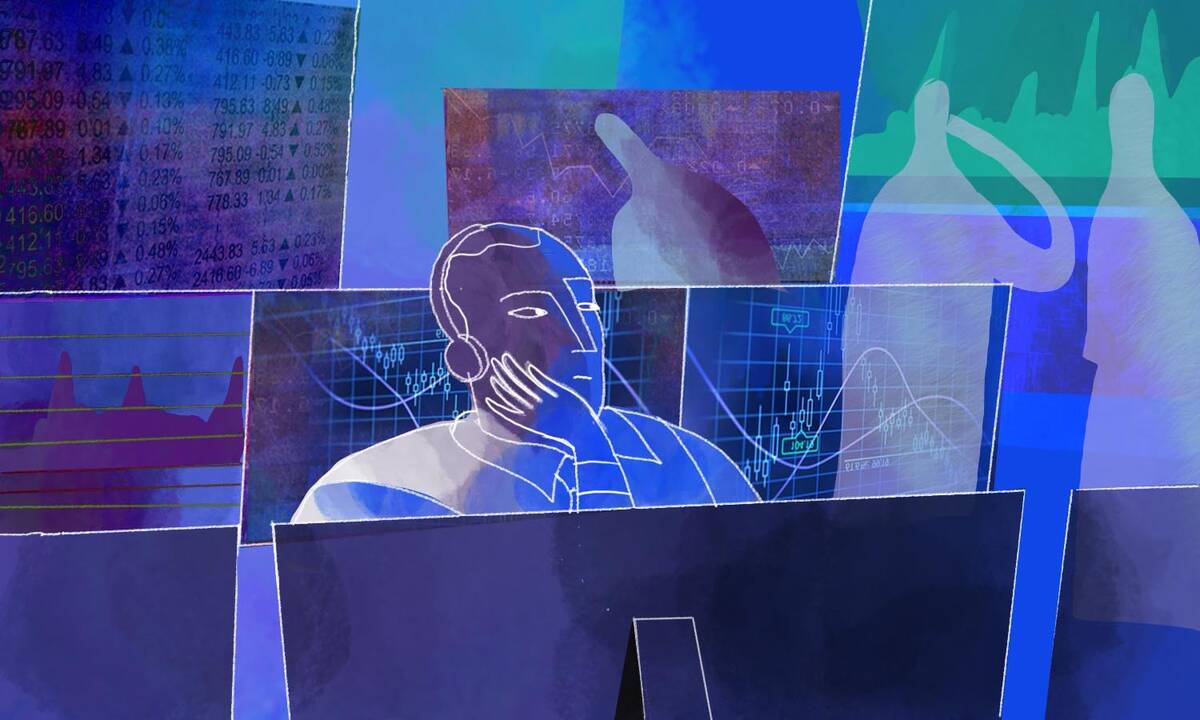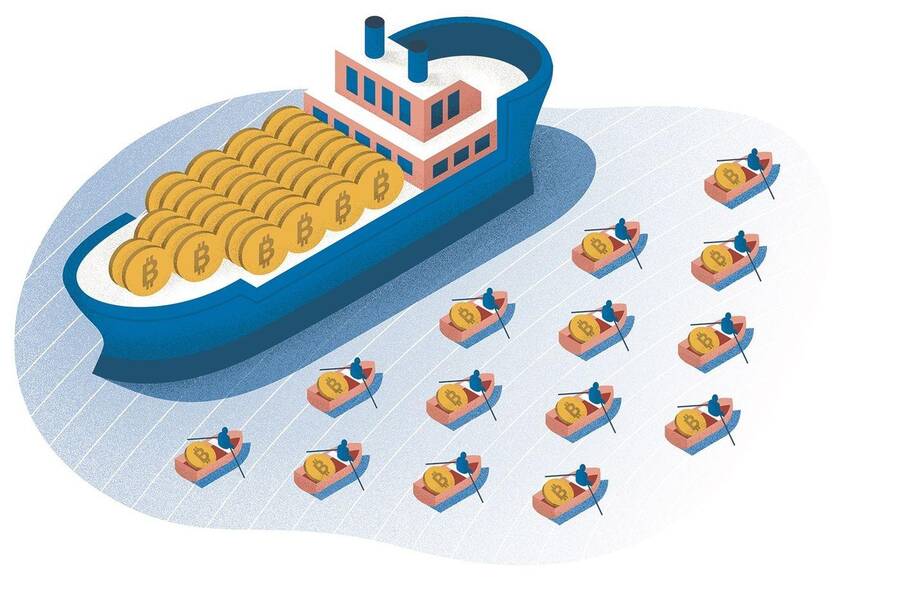Finance & Accounting Strategy Nov 18, 2022
What Went Wrong with FTX—and What’s Next for Crypto?
One key issue will be introducing regulation without strangling innovation, a fintech expert explains.

Yevgenia Nayberg
Late 2022 has not been kind to the crypto space. The meltdown of the FTX exchange, along with the high-profile collapses of several currencies, have many investors thinking twice about their positions in the sphere.
FTX, the third largest of the centralized exchanges where people go to trade all manner of cryptocurrencies, has recently filed for bankruptcy. The fallout is expected to be widespread.
Kellogg Insight caught up with Sarit Markovich, a clinical professor of strategy and fintech expert, to discuss what happened, what we can learn from it, and where the industry may be headed next.
This conversation has been edited for length and clarity.
Kellogg INSIGHT: Can you give us some background on why the collapse of FTX is so destabilizing in the Crypto space?
Sarit MARKOVICH: When we think about FTX, they were really the darling of the crypto space in the sense that they were considered to be among the most secure and they were lobbying for regulation. And Sam Bankman-Fried was donating to so many different charities and politicians. FTX was definitely considered to be a very stable point in a very volatile world. Having them collapse—or having them conduct fraudulent activity—that is what’s really shocking many people and having a huge negative effect on the entire crypto world.
The other thing to understand is that FTX is a centralized exchange. FTX is like the New York Stock Exchange, only instead of letting you buy and sell stocks of large organizations, it lets you buy and sell crypto. They are a custodian, meaning they hold your money. And that’s where a lot of the issues come from.
In a decentralized project, everything is transparent. Some projects do not hold your money, your information, your data. You have your own wallet where you’re keeping everything that you want to keep. And then if you want to perform any kind of transaction, you are the one who’s authorizing it and no one else has access to it. Someone would need your password—your keys—to access your wallet. Those who hold your money are fully transparent, so if there is any fraudulent activity, everyone can see it and know who performed it.
So there are also decentralized crypto exchanges—Uniswap, SushiSwap—which have no issues in terms of fraud. There might be hacking, but they are not performing any kind of fraudulent activity. And that’s because they’re not a custodian; they’re not holding your money. You are just using them to swap different cryptocurrencies. But they cannot take your money and use it for something else, because they are a decentralized exchange.
So in a way, we have here a collapse of a centralized system that should be regulated. There is no doubt that it should be regulated. However, because regulators are still trying to figure out how to regulate crypto, it’s not regulated. That has allowed FTX to do what they did.
INSIGHT: So just to clarify, FTX is an exchange—but it also had its own token, too?
MARKOVICH: Yes, called FTT. And if you were holding their token, you would get a discount on some of their fees. Because it was considered to be such a successful company, there was a lot of demand for this token, so its value rose. People were trading FTT as you would typically trade any kind of stock or crypto.
So FTX has an investing arm, a sister company called Alameda. And in early November, the crypto publication CoinDesk realized that Alameda’s assets are mostly in FTT. They own a very large share of the overall FTT tokens. So if they sell FTT, then its price would collapse, and that means that overall their balance sheet is worth less than they claim. This by itself is not fraud, but it raised suspicion that something is wrong.
Once CoinDesk broke the news that Alameda was not holding enough backup funds, Binance, who was holding a lot of FTT, said, “We’re going to sell our FTT.” And then it was clear that it would have a huge effect on the price of FTT—and that’s when everything started collapsing.
We then learned Alameda also invested in ventures but required those ventures to keep their money in FTX, which was then lent back to Alameda to invest in other projects. And in addition, FTX gave Alameda loans that were in fact their customers’ money. It’s really Bear Stern: it’s really fraud what they did.
And that’s just what we know today. There may be more going on.
INSIGHT: So obviously this is not happening completely in isolation. A lot of cryptocurrencies have collapsed in the past year. I was wondering if you could contextualize this for us. How are investors even feeling about crypto? Is this an existential crisis if you can’t trust the currencies? If you’ve got Terra LUNA losing more than 90 percent of its value, and you have the exchanges that are fraudulent, does crypto have a future?
MARKOVICH: I definitely believe that there is a future for crypto. In a way, these events are going to benefit the crypto world, because there is a need for regulation and trying to get it as fast as possible is going to be helpful. It would also push the market more toward DeFi, toward decentralized projects that are fully transparent.
It’s true that now regulation is probably going to be stricter than it would have been otherwise. But regulation that helps stop fraudulent activity and Ponzi schemes benefits the entire industry.
INSIGHT: So part of it is those purely speculative cryptos. Like, “Hey, I’ve got this new token! It’s called TOKEN. Get in now on the ground floor where you can get it cheap.”
MARKOVICH: Exactly. That’s like Dogecoin—there is nothing behind it. But then you have a token like Ethereum, which is being used to perform different activities on the Ethereum network. The Ethereum network is doing a lot of cool things in terms of allowing for different types of transactions and trades that are creating value.
The problem is that a lot of retail investors or amateur investors are just looking for quick returns. They often do not know how to distinguish between decentralized and centralized projects, and they don’t do the due diligence to understand what is behind the coins. They can’t answer what value a specific token holds or whether they believe that it is going to create and sustain some kind of value.
Regulation is probably going to be stricter than it would have been otherwise. But regulation that helps stop fraudulent activity and Ponzi schemes benefits the entire industry.
— Sarit Markovich
The sad part is that even many VCs do not have a good understanding of this entire industry and are getting it wrong.
Now FTX was something completely different. If FTX did not perform fraudulent activities, then in general a centralized exchange could be a great investment and a great project. So you cannot really blame the market here. There was no way to know that FTX was lending its investors’ money to Alameda. This is where a regulator will have to come in or the transparency that comes with decentralization would be of great value.
INSIGHT: It sounds like it is kind of a community divided right now: you’ve got some companies calling very strongly for regulation and others saying we just need better crypto workarounds.
MARKOVICH: Yeah, exactly, there are those who are trying to build a parallel ecosystem that is decentralized and unregulated and those who think regulation is going to allow crypto to go mainstream.
The latter’s thinking is that once it’s mainstream, you’re going to be able to do much more than what you’re doing now, because you’re going to have more funding and more clients. There’s going to be a much larger ecosystem.
But a lot of the decentralized projects felt that this is going to hurt them, because when you’re thinking about trading in crypto, for example, there is a lot of high-frequency traders. So there’s a lot of front-running going on that is going to be illegal if the market is regulated. Regulation would take away a lot of the opportunities that are out there.
INSIGHT: Stepping back a little bit, how would you envision FTX’s implosion as affecting the future of crypto? How is this changing the trajectory of the industry?
MARKOVICH: We have had collapses in the last year, but many felt that this was because the projects were just not legit. If you wanted to know more about Luna, you could read their white paper that is available for all and do the analysis. Then you could have figured out that when the market is high, they’re going to do great, but when the market is down, they aren’t. With FTX, you could not really see what they were doing with the funds. That’s the difference between centralized and decentralized projects—and most of the recent collapses like Celsius, Three Arrow Capital, or BlockFi are centralized projects. Since many do not realize this difference, they view these as crypto failures. So this is going to slow down demand. Investors are not going to be as likely to invest.
It also means that regulation is going to come sooner rather than later—and it is going to be stricter.
My concern is whether regulators will understand that regulation for centralized and decentralized projects should be different. You don’t want to just regulate the market and think about crypto as crypto. There are different types of projects that need to be regulated in different ways. Overly strict rules are not going to allow the DeFi world to be as innovative.
INSIGHT: If I don’t think I care about crypto at all, can you give me an example of one of those projects that you think is really neat and actually has the potential to have a cool impact on the physical world, that you think DeFi is making possible?
MARKOVICH: Decentralized exchanges like Uniswap and SushiSwap are really cool. If you think about crypto as a stock, the fact that I can buy a stock from you without going through a broker and without paying high fees, it makes everything more liquid. I think that that’s great.
Another project that I believe is great is MakerDAO. They give loans that are collateralized but do not require any kind of AML KYC [anti-money laundering and know your customer checks]—meaning that you don’t need to prove that you have a lot of money, or who you are. If you need the money, then MakerDAO is going to lend it to you if you put up the needed collateral.
There are ways this is being gamed—and there are attempts to limit the type of gaming that is going on—but as a concept, using DeFi to help people who find it hard to borrow money is interesting.
Cross-border payments are another issue, with their high fees, which crypto can do so easily.




